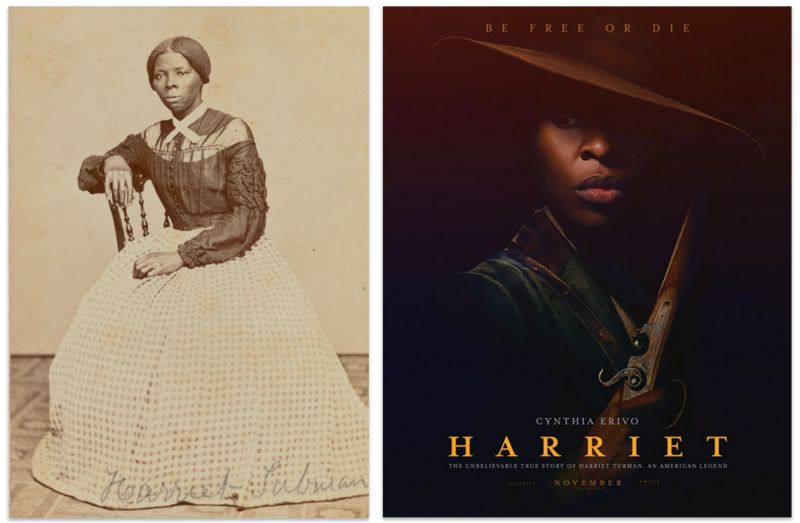After the Civil War started, Harriet Tubman joined the Union Army and led a raid up the Combahee River between Charleston and Beaufort, liberating more than 700 enslaved people. The movie Harriet premeires in November.

By the time Harriet Tubman arrived in the Lowcountry in 1863, she was already known as the “Moses” of her people for guiding enslaved African Americans to freedom, much as her Biblical namesake helped the Jewish escape Egypt. Born into slavery in Maryland, Tubman emancipated herself a decade before the first shots of the Civil War were fired and led at least 70 enslaved people to freedom along the Underground Railroad network.
After war was declared, she returned to the South, joining the Union Army as a nurse and later as a team leader of scouts. Tubman gathered intelligence about Confederate troop locations and assets from African Americans who worked on the plantations and relayed it to Union generals.
She is celebrated for her role as the first woman to plan a military assault in the June 1863 Combahee River Raid. Tubman, alongside white troops and the 2nd South Carolina Volunteer Infantry (a unit of African American soldiers), traveled up the river on two gunboats, stopping along the way to destroy plantations and liberate more than 700 enslaved people.
The fearless Tubman continued to fight for civil rights, but was never paid for her service to the U.S. government and died in poverty in 1913. Recently, there have been revived efforts to recognize her legacy. In 2008 a bridge across the Combahee River in Beaufort was named in her honor. And on November 1, the movie Harriet premieres to salute the remarkable woman who fought in the name of freedom.
Photograph Courtesy of The Library of Congress